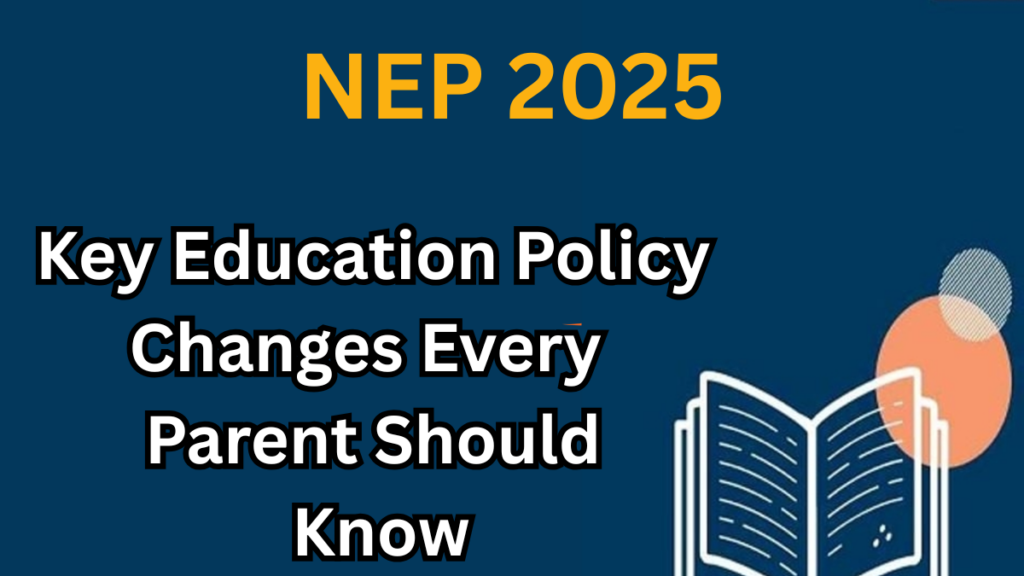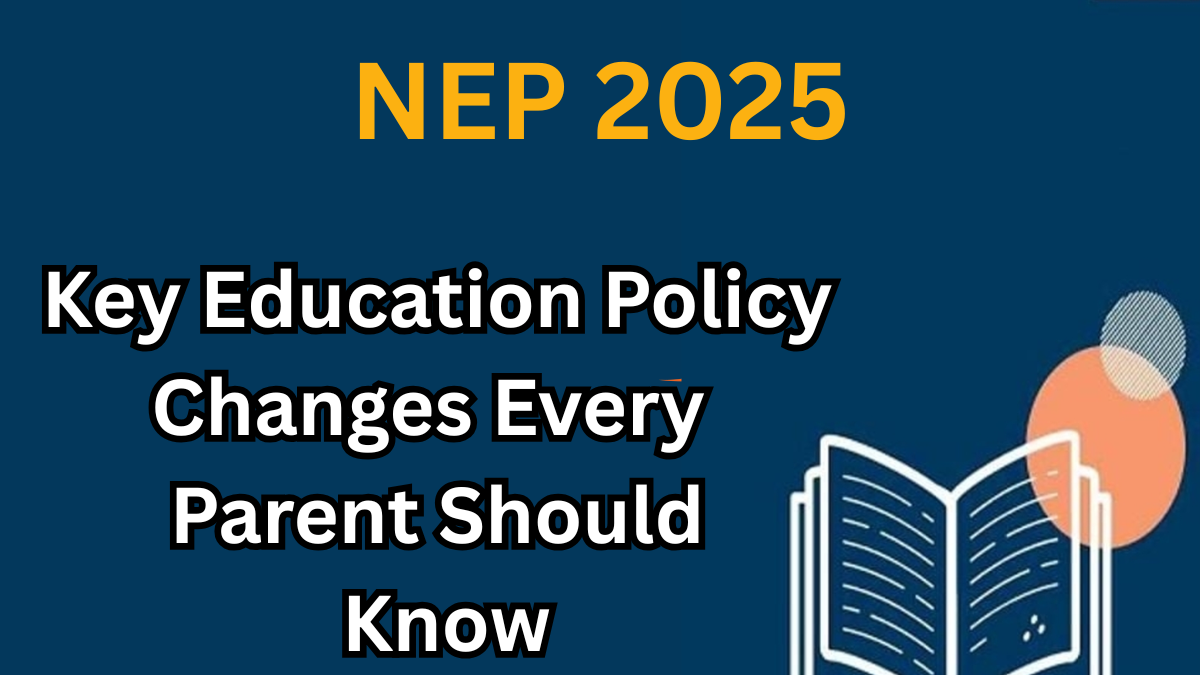India is stepping into a new era of learning with the National Education Policy 2025—a transformative initiative aiming to reshape the entire school education system. As a parent, staying informed about these reforms isn’t just helpful—it’s essential. This guide breaks down the NEP 2025 changes explained in a simple, digestible format.

Why the NEP 2025 Matters to You as a Parent
Gone are the days of rote learning and exam pressure. The NEP 2025 aims to make learning more meaningful, skill-based, and flexible—better preparing your child for the real world.
Highlights:
-
Redefines the traditional academic structure
-
Emphasizes foundational skills and creativity
-
Prioritizes regional languages in early schooling
-
Integrates digital literacy across all levels
-
Focuses on student well-being and stress-free learning
Key NEP 2025 Changes Explained
Here’s a closer look at what the national education policy updates mean for your child:
1. New 5+3+3+4 Curriculum Structure
This replaces the old 10+2 format, aligning with a child’s cognitive development stages.
| Stage | Age Group | Grades Covered | Key Focus Areas |
|---|---|---|---|
| Foundational | 3–8 years | Preschool to Grade 2 | Play-based, activity-based learning |
| Preparatory | 8–11 years | Grades 3–5 | Discovery-based learning, literacy, numeracy |
| Middle | 11–14 years | Grades 6–8 | Critical thinking, experiential learning |
| Secondary | 14–18 years | Grades 9–12 | Multidisciplinary study, flexibility |
2. Multilingualism and Mother Tongue Learning
The NEP promotes education in a child’s mother tongue or regional language until at least Grade 5.
-
Builds a stronger foundation for comprehension
-
Encourages pride in linguistic identity
-
Improves learning outcomes in early stages
3. Focus on Skill-Based and Vocational Education
Starting from Grade 6, students will be introduced to hands-on vocational skills, like:
-
Coding
-
Carpentry
-
Gardening
-
Design thinking
This ensures children develop practical life skills and grow beyond textbook learning.
4. Digital Integration Across All Levels
Digital learning tools will be seamlessly integrated into classrooms.
| Aspect | What’s Changing |
|---|---|
| Smart Classrooms | More interactive, tech-enabled lessons |
| Online Learning Platforms | Wider access to resources via DIKSHA & SWAYAM |
| Digital Assessments | Personalized feedback and real-time progress |
This move reflects the NEP 2025’s aim to prepare students for a tech-driven world—one of the major school reforms India is investing in.
5. Assessment Overhaul
Traditional exams are giving way to a more holistic and continuous evaluation system.
-
Emphasis on conceptual understanding
-
Regular formative assessments instead of one final test
-
Student report cards to include self- and peer-assessments
What NEP 2025 Means for Parents?
Here’s what you, as a parent, need to be aware of:
✅ Active Role in Learning: You’re encouraged to be part of your child’s learning journey through open school-home communication.
✅ Holistic Development: Watch your child grow not just academically, but emotionally, socially, and intellectually.
✅ Less Exam Stress: No more cramming for high-stakes exams.
✅ Exposure to Real-Life Skills: Your child will gain valuable life and professional skills early on.
Quick Summary of National Education Policy Updates
| Area of Reform | Old System | NEP 2025 Reform |
|---|---|---|
| Curriculum Structure | 10+2 model | 5+3+3+4 structure |
| Exam System | Year-end exams | Continuous, formative assessments |
| Medium of Instruction | English/Hindi from early grades | Regional language till at least Grade 5 |
| Skill Education | Limited | Starts from Grade 6 with internships |
| Focus of Education | Rote learning | Conceptual understanding and critical thinking |
| Digital Integration | Limited tech use | Full digital learning and smart classrooms |
FAQs
1. Will English no longer be taught in schools?
Not at all. English will still be taught, but regional languages will be emphasized until Grade 5 to strengthen foundational learning.
2. How does the NEP 2025 benefit students in rural areas?
It ensures equity by promoting digital learning access and teaching in local languages—bridging urban-rural education gaps.
3. Is the new curriculum already in effect?
Implementation has begun in phases and will be fully rolled out by 2025 across all states.
4. What role do parents play in NEP 2025?
Parents are seen as key stakeholders. Schools are encouraged to create channels for regular parent-teacher interaction and involvement.
Final Thoughts
The NEP 2025 changes explained here are more than just policy shifts—they represent a brighter, more balanced future for India’s next generation. As a parent, your awareness and support can make a huge difference in ensuring these reforms succeed.
By staying updated on these national education policy updates and supporting the school reforms India is embracing, you’re not just investing in your child’s education—you’re investing in the country’s future.
Click here to learn more
Sachin is a dedicated writer specializing in education, career, and recruitment topics, delivering clear and actionable insights to empower readers.
